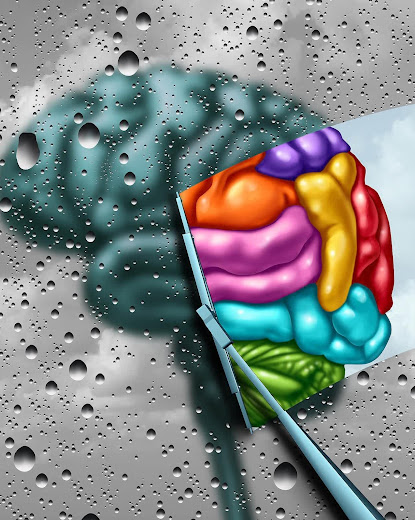ADHD and Relationships: A Dance
Living with ADHD affects so much more than just focus or productivity, it also often has a significant impact on relationships. ADHD’s symptoms of inattention, hyperactivity, and impulsivity can affect relationships of all types. Romantic relationships, friendships, family relationships, and professional relationships are all affected in some way by the symptoms of ADHD. With the right tools everyone dealing with managing ADHD in their relationships can succeed. Finding new ways to manage your symptoms can not only help you improve you relationships but it can also give an opportunity to grow a deeper understanding of your relationship.
So often many want to blame themselves for everything going wrong in their relationships because of ADHD. But in reality placing blame doesn’t help anyone at all. Instead of blaming, you take some time to learn about how ADHD affects relationships and how you can improve those relationships by managing the nuances of ADHD. You can navigate these difficulties. And with awareness and effort you can improve your relationships with others in whatever aspect of your life you may be struggling in. Let’s explore how ADHD impacts relationships, the emotional toll ADHD takes on relationships, and strategies you can use to strengthen your relationships.
How ADHD Changes Relationships: Understanding the Challenges
Recognizing patterns in your relationships can be the first step in managing the unique challenges caused by ADHD in relationships. Here, we will look at the core symptoms of ADHD and how each one can affect relationships in it’s own way.
Inattention: When Focus Becomes a Relationship Challenge
Many of those who struggle with ADHD are familiar with inattention, but how does it affect relationships? Inattention can lead to frustration and miscommunication. Many times people with ADHD will accidently ignore others they are in relationship with or they will forget to check in on others. Their brains work differently and this causes these symptoms to occur often. Some other ways inattention occurs in relationships include: Difficulty staying present during conversations, forgetting important dates and details, struggling with follow-through, and hyperfocus creating imbalance.
Real-world example: Take a moment to imagine, your partner reminded you this morning of dinner plans. You confirmed you would be there and gathered the necessary details. Maybe you even wrote the details down. Your partner now believes you will be there and won’t forget. But, you have ADHD and inattention causes you to forget details and even where you put that post it you wrote them on. You get busy at work and time flies by. Now it is late and you stroll home. Your partner is disappointed and feels forgotten.
The important part of all of this is that you don’t immediately place blame on yourself or your ADHD. Now you can start to learn how to manage your inattention so that you are less likely to have the above scenario occur. With that knowledge and improvement, you can begin to mend your relationship with your partner.
Hyperactivity: When Restlessness Meets Relationships
Hyperactivity in children is clearcut, but in adults it is often manifested in internal restlessness, impatience, and the inability to relax. These symptoms can cause difficulties in relationships too. Ways hyperactivity may affect relationships include: Difficulty with downtime together, interrupting and over-talking, impatience with processes, constant need for stimulation and novelty, difficulty with routine intimacy.
Real-world example: Today your best friend has invited you over to their house for a movie night in. They set everything up and have everything ready when you arrive. You try to sit down in the comfy chairs and enjoy the popcorn but inside you need to get up and do something. At this point you are not even watching the movie. So you suggest going out for drinks, or a walk, or anything at this point. And as a result, your best friend feels like you don’t appreciate their efforts or desires.
Impulsivity: The Double-Edged Sword of Spontaneity
Impulsivity presents it’s own challenges. Impulsivity often looks like acting or speaking before thinking about it or the consequences of those words or actions. While not always, impulsiveness often leads to arguments in relationships. There is a lot of room for misunderstanding with impulsivity. The other side of impulsivity though is that it can lead to excitement, adventures, and spontaneity. Examples of impulsive behaviors that affect relationships: Making major decisions without consultation, saying hurtful things during arguments, changing plans at the last minute, impulsive social commitments, and seeking constant novelty in the relationship.
Real-world scenario:
Lately the weather has been less than desirable and you want to go to the beach. You think it would be a great surprise for your family and get really excited about it. You schedule and pay for an expensive trip without talking with your partner about it. You get home to surprise the family with the news of a great trip to come. Your partner feels hurt and concerned about the amount of money you spent without regard for the bills that need paid. Now they are anxious about money and feel like the bad guy when they are forced to say the family can’t go on the vacation.
The Emotional Impact of ADHD on Relationships:
As many already know, ADHD does not only affect the person with ADHD, it also has great impact on those the person with ADHD interacts with. Partners, friends, family, and colleagues all experience ADHD with the person who deals with the symptoms directly.
For the Those with ADHD: The Internal Struggle
Living with ADHD in relationships often comes with complex, overwhelming emotions that can be difficult to articulate:
Shame and persistent guilt: Worry that you are letting others down, forgetting responsibilities or important dates, and worry about how your symptoms are creating problems for others. Shame and guilt, over time, often lead to a deep sense of inadequacy. And then, the shame cycle sets in, causing you to feel more and more ashamed which often makes it harder to make changes and address your symptoms and how they affect your relationships.
Rejection sensitivity dysphoria (RSD): Many people with ADHD experience RSD, which is characterized by intense, overwhelming reactions to perceived rejection, criticism, or disapproval. For someone with ADHD, what might appear to be insignificant disagreement can feel like a devastating rejection, frequently turning small arguments into serious relationship problems.
Chronic low self-esteem: Ongoing struggles in a particular relationship or in multiple relationships can lead to reinforced negative core beliefs. Some examples include feeling like you are “too much,” “not enough,” or “difficult to love.” These beliefs build up overtime and often sabotage relationships of all kinds.
Fear of abandonment: A fear that the ongoing difficulties added to the relationship because of ADHD may lead the other person to leave.
For Those without ADHD: The Emotional Toll
On the other side of the relationship, the non-ADHD partner often experiences their own set of challenging emotions:
Feeling consistently unloved or unimportant: ADHD symptoms like forgetfulness, inattention, or distraction can feel like the other person does not care or want to invest in the relationship. It can often leave someone feeling like they don’t matter to the person with ADHD.
Carrying disproportionate responsibility: The non-ADHD partner may be doing so much to help keep the relationship afloat, leading to resentment and burnout.
Emotional exhaustion and caregiver fatigue: Managing the emotional ups and downs, reminding people, and navigating ADHD-related challenges on a regular basis can be emotionally and mentally taxing.
Confusion and frustration: Without a clear understanding of ADHD, the non-ADHD partner may consistently misinterpret symptoms as intentional behavior, carelessness, or lack of love.
Loneliness and isolation: Doing so much to hold together the relationship, especially when the person with ADHD is struggling to see the issues, can lead to a deep feeling of loneliness even when they are not actually alone.
Different Relationships, Different Challenges: ADHD Across All Connections
Romantic Partnerships: Intimacy and ADHD
Romantic relationships can be made quite difficult to manage when ADHD is a factor. Intimacy and shared goals both become affected. Issues like emotional regulation, maintaining attention, and balancing couple needs with individual needs often need strategies to manage and constant communication as well.
Family Relationships: Generational Patterns and Understanding
Because ADHD runs in families, different complex dynamics are created and often generational misunderstandings of ADHD come into play. There are many family relationship types that all require different approaches and strategies. Sibling dynamics will be different from parent-child dynamics and those will be different from extended family dynamics.
Friendships: Social Challenges and Connection
Staying in touch, managing social commitments, and navigating group dynamics are all part of managing friendships and are all made difficult by ADHD symptoms. ADHD also brings creativity, passion, and other great qualities to friendships as well.
Professional Relationships: Workplace Dynamics
Relationships at work are impacted by ADHD because of difficulties with time management, communication, and fulfilling professional standards. Career success depends on knowing how to manage ADHD symptoms while navigating relationships with coworkers, supervisors, and teams.
Comprehensive Strategies for Thriving Together
The great part is you can do something about all of this. There are strategies that can help you manage not only your ADHD symptoms but also how they affect all of you relationships. Here are some strategies you can use:
ADHD-Aware Communication
Honest, clear communication is the foundation of any successful relationship, but it’s especially crucial when ADHD is involved. This is more than just talking. This is about creating communication that works with the ADHD brain.
Practical communication strategies:
- Schedule regular check-ins (put it in multiple digital and paper calendars if necessary)
- Use “I” statements to express your feelings
- Write things down in important conversations (to help with understanding and memory)
- Practice active listening
Build Structure That Supports Both People
ADHD often thrives with external structure and systems. Creating organization and routines that work for everyone can reduce conflict and increase success.
Organizational tools that work:
- Utilize shared digital calendars for important dates and commitments (birthdays, upcoming meetings or dinners, etc.)
- Try task management apps
- Visual reminders and notes in strategic locations (bathroom mirror, refrigerator, garage door)
- Engage in regular planning sessions to coordinate schedules and discuss priorities
Celebrate ADHD Strengths and Unique Qualities
ADHD comes with true strengths and positive qualities that can make relationships better when recognized and appreciated. These strengths and qualities often include creativity, passion, spontaneity, empathy, and the ability to think outside the box.
Ways to highlight ADHD strengths:
- Acknowledge and appreciate moments of hyperfocus on relationship activities
- Celebrate creative problem-solving
- Embrace spontaneous adventures and new experiences together
- Recognize the emotional intensity and passion that is brought to the relationship
Establish Clear, Compassionate Boundaries
Setting boundaries is about creating a framework that allows everyone to feel safe, respected, and heard.
Effective boundary-setting includes:
- Agree on financial decision-making processes before major purchases (no impromptu vacations without discussions first)
- Create guidelines for shared downtime that respect everyone’s needs
- Establish communication ground rules for conflicts (safe words, no yelling, etc.)
- Set realistic expectations that take ADHD symptoms into account
Practice Patience and Embrace Growth
Growth takes time and effort from everyone involved. Don’t be surprised by setbacks, remember to celebrate small wins, and understand ADHD is an ongoing process especially in relationships.
Building patience and resilience:
- Progress not Perfection, make this your motto
- Celebrate small wins
- Develop coping strategies for difficult days
- Remember that everyone is learning and growing
When Professional Help Makes a Difference
If ADHD symptoms are significantly impacting your relationships despite your best efforts, professional help can provide the support and strategies you need to create lasting positive change.
Types of professional support that help:
- Couples therapy with ADHD-informed therapists
- Individual therapy with ADHD- informed therapists
- Family therapy when ADHD affects multiple family relationships
- Support groups for both ADHD individuals and their partners
- Psychiatric evaluation for medication management when appropriate
Early intervention and support can prevent many common ADHD relationship challenges from becoming major problems.
Building Your Positive Relationship Future
ADHD doesn’t have to define your relationships and your abilities within those relationships. ADHD is just one ingredient in the recipe of relationships. Taking the time to understand your ADHD and what you need to better interact with others in your relationships will go a long wat. Good communication, effective strategies, and commitment from everyone in the relationships will lead to positive changes in relationships.
Start with small, manageable changes. Remain patient with yourself and your loved ones and remember that every relationship faces challenges. ADHD challenges are simply different, not insurmountable.
FAQs
Which ADHD medication is best for me?
That is a great question for your prescribing doctor as this is highly individualized. There are two types of ADHD medications and both come with their ups and downs. Stimulants are often effective for most people but when they are not a good fit there are non-stimulant medications that can achieve the same symptom management as the stimulant medications. Some things your prescriber will likely take into consideration when deciding what is best for you are: Any past response to medications, side effects, and other medical conditions you may have.
What does ADHD mean?
ADHD stands for Attention Deficit Hyperactivity Disorder. ADHD is the name for the neurodevelopmental disorder that is often marked by symptoms of inattention, hyperactivity, and impulsivity.
How is ADHD diagnosed?
ADHD is diagnosed by a qualified professional through a thorough evaluation. ADHD is assessed by identifying the individual’s symptoms, age of onset, areas of life that are affected by symptoms, how symptoms impair the individual, and by looking at any exclusions that may better explain symptoms.
How does ADHD affect the brain?
ADHD affects the brain both in structure and in function. People with ADHD sometimes will have some areas of the brain that are smaller than those without ADHD. Those with ADHD also sometimes have disrupted neural networks. They may also have some areas of the brain that are hyperactive or hypoactive as compared to their non-ADHD counterparts.
Can ADHD cause Anxiety?
Yes, ADHD symptoms can cause anxiety in many ways. One of the more common ways ADHD causes anxiety is through the social difficulties caused by the symptoms of ADHD. For example, ADHD time blindness may cause someone to be late for a meeting and being late for the meeting may cause the person anxiety.
Can ADHD cause memory loss?
ADHD does not cause memory loss, but the symptoms of ADHD can affect working memory and can cause forgetfulness. The common symptoms of ADHD like losing track of things and forgetting important dates are not a result of memory loss but rather the effects of ADHD on working memory and other aspects of the person’s life.





